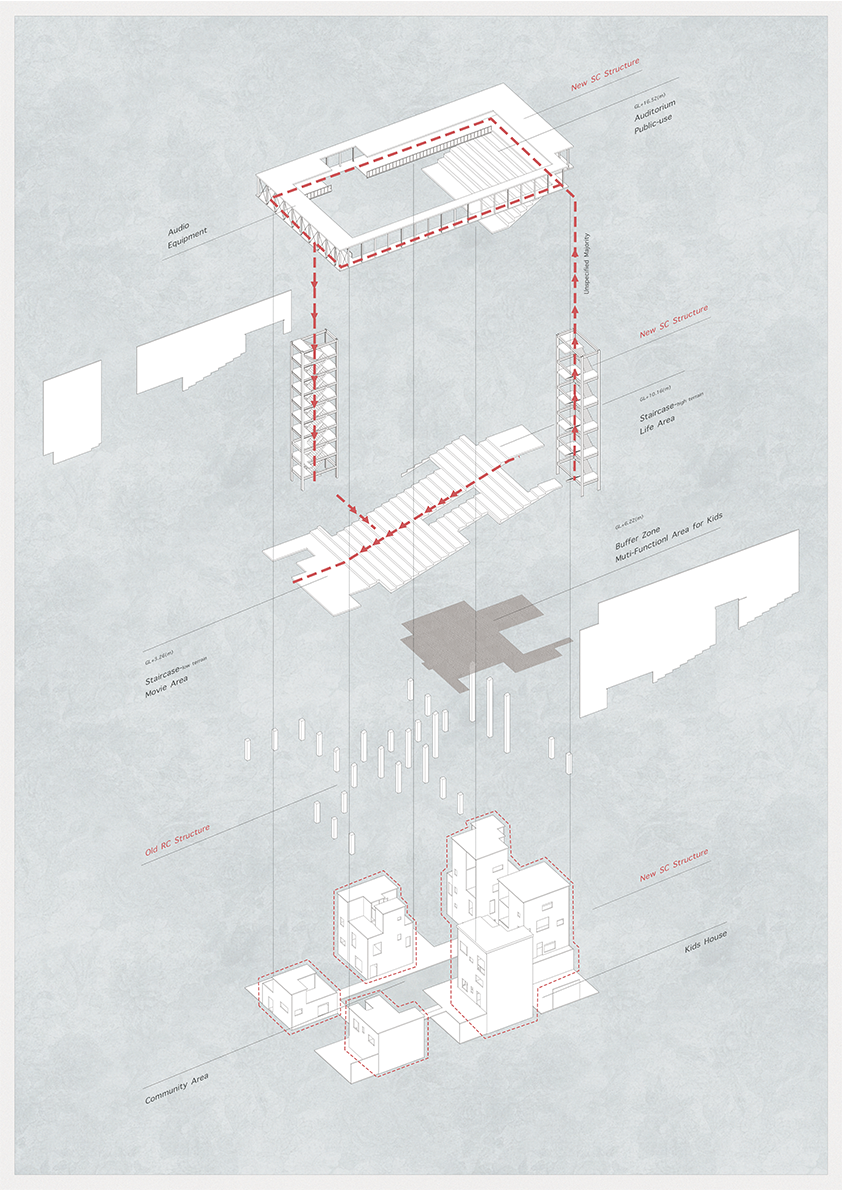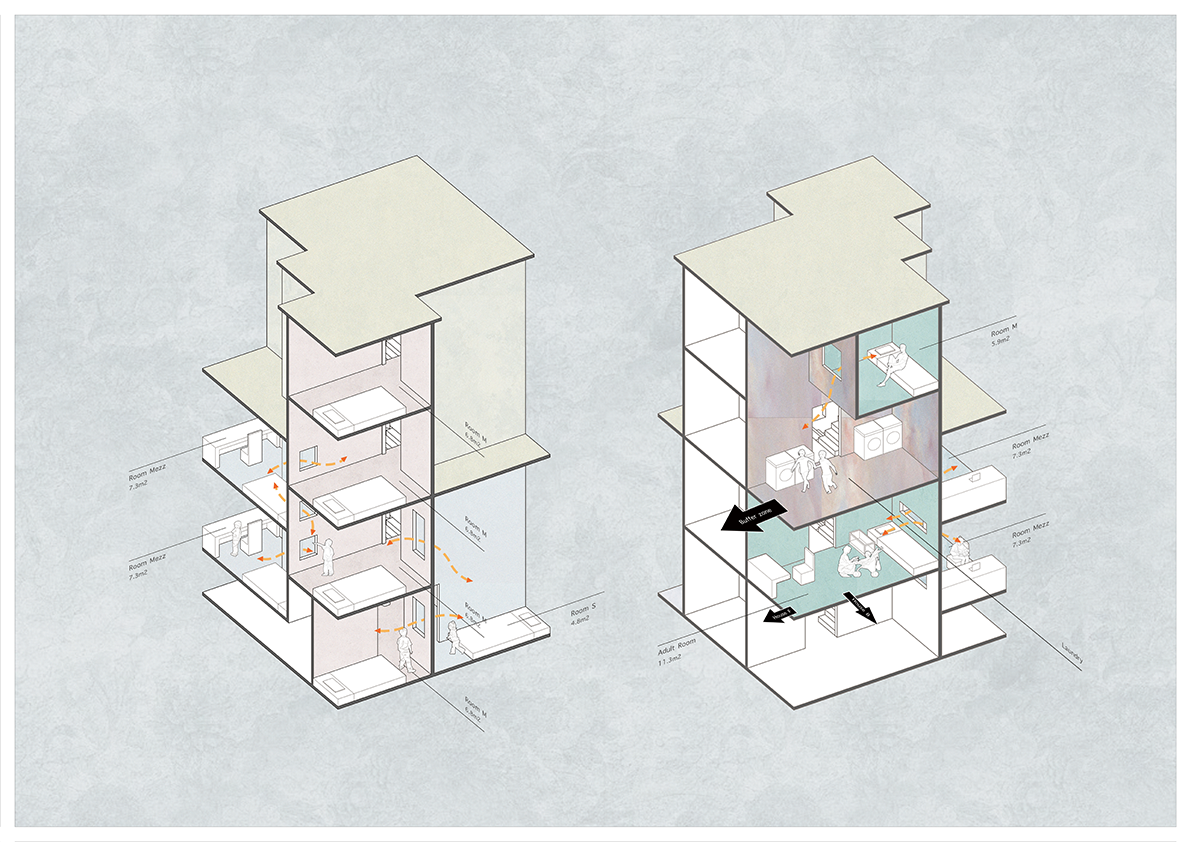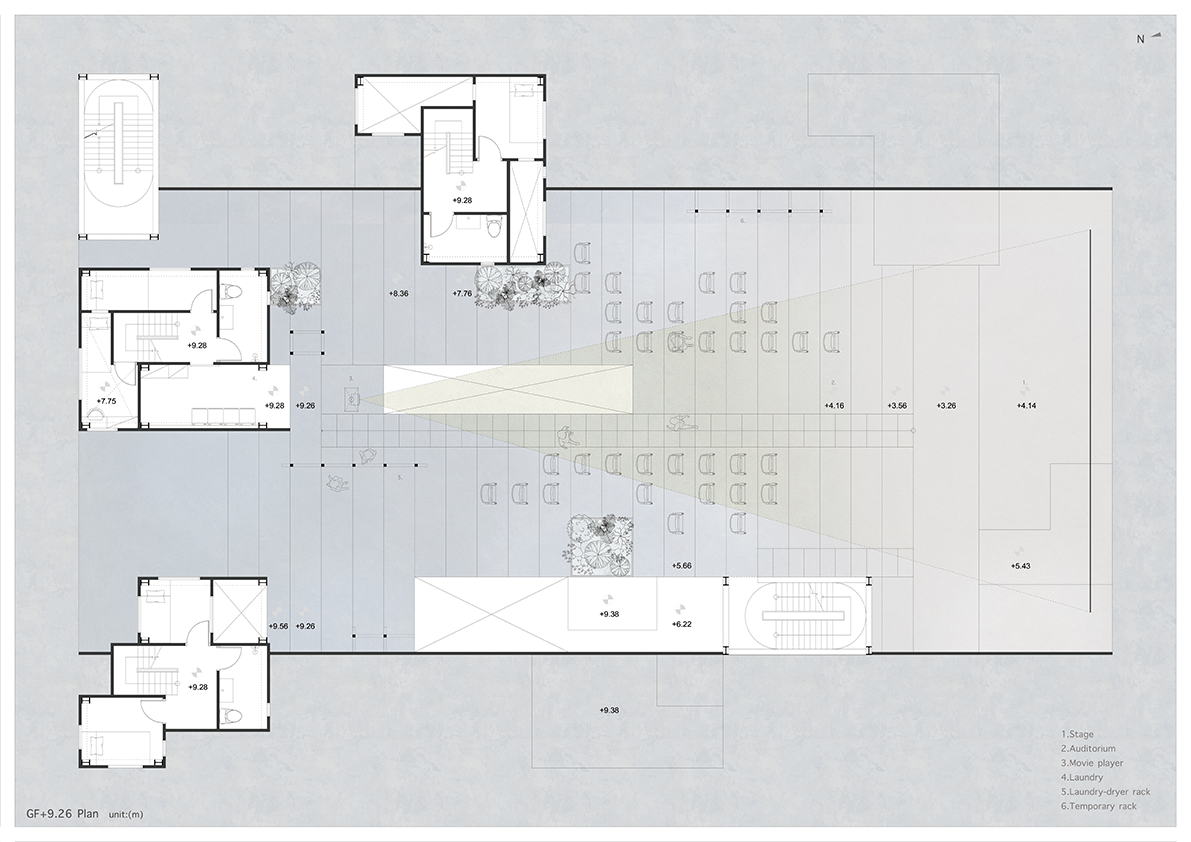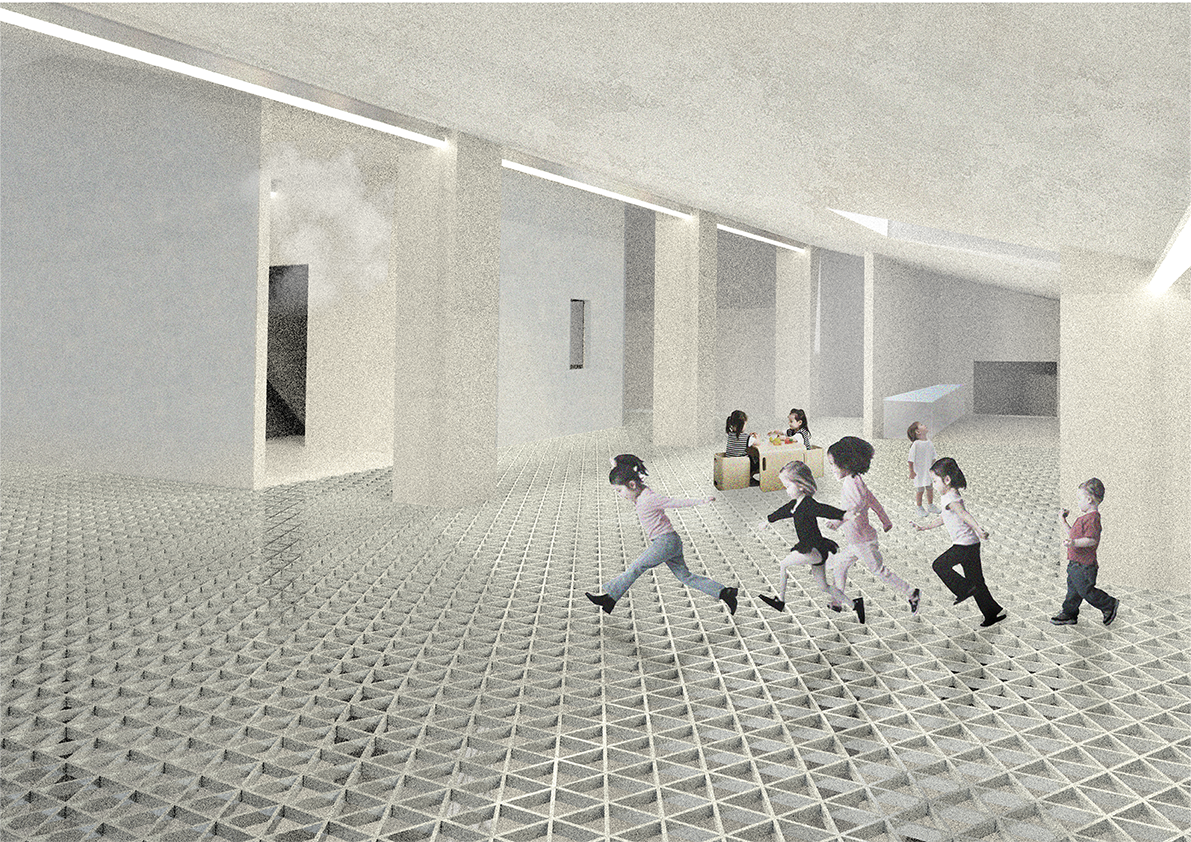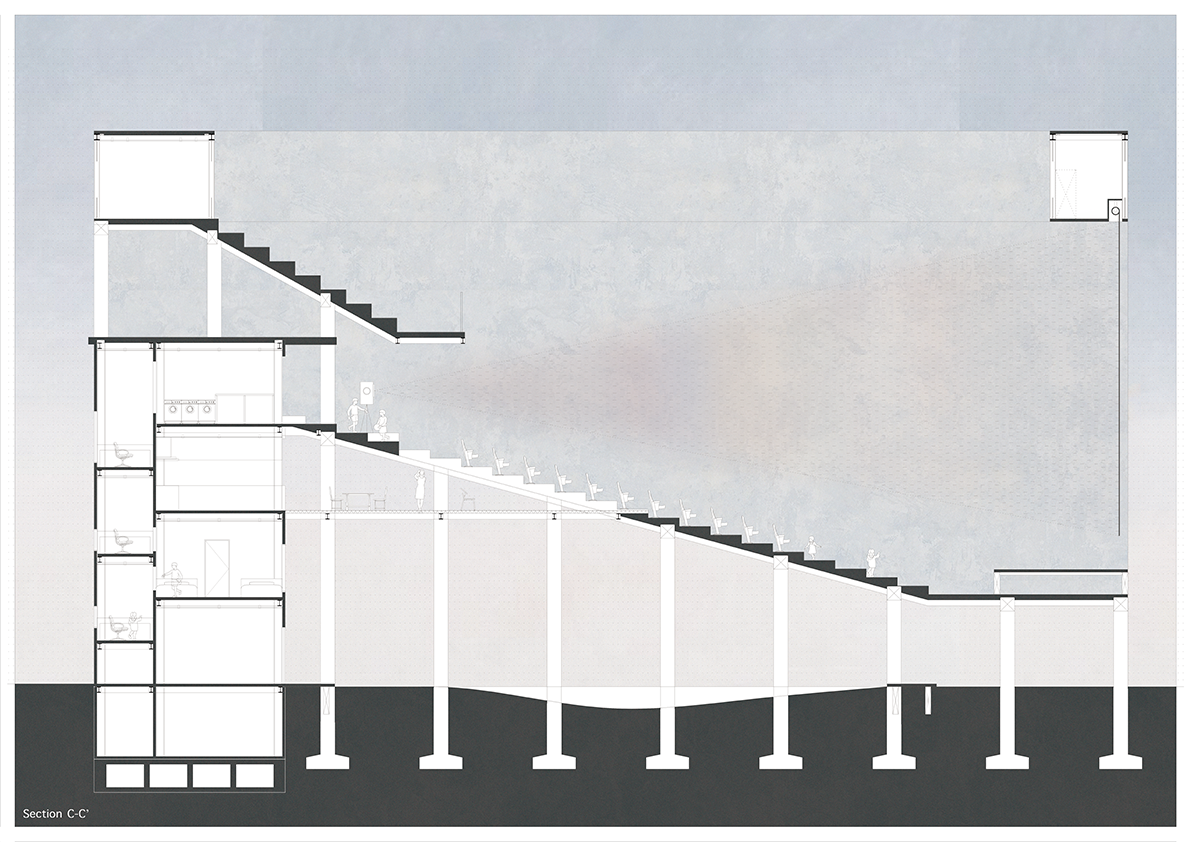家也非家
Home or Not
徐家昱
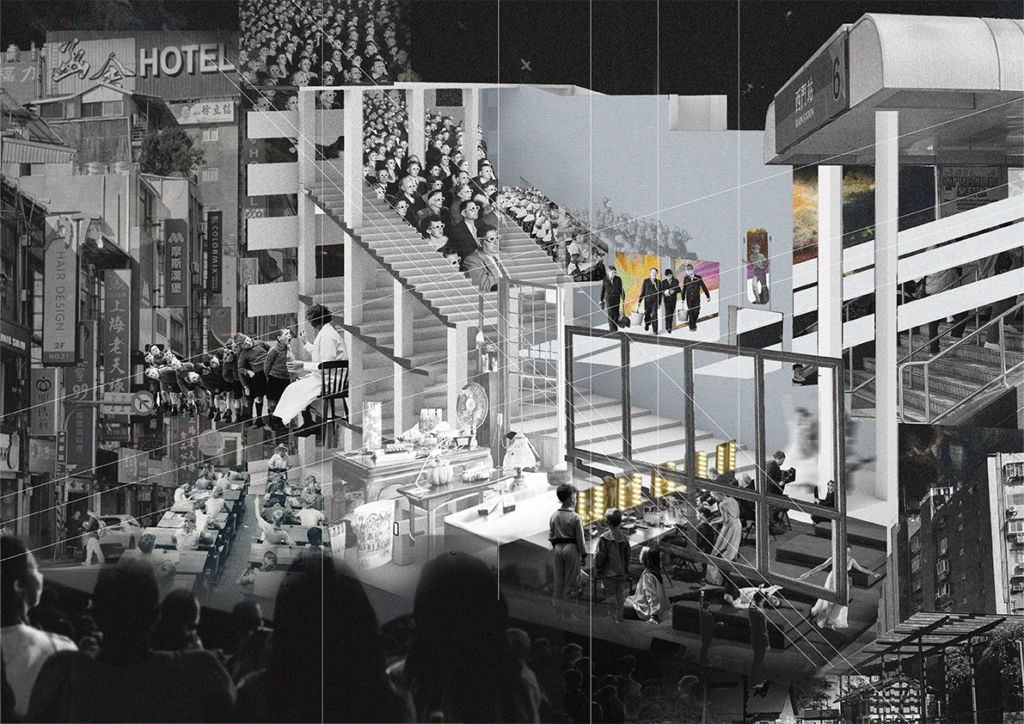

育幼院之於孩童的居住新想像
設計說明
這個家在兒童成長過程中是否能有超越家也非家的體驗而產生生活的新想像
基地
台北市西門町台北戲院
「育幼院」是台灣收容失家兒童的地方。孤兒、遭遇家暴、無人管顧、司法轉向的孩童,他們會在政府和社福的協助下被分配到各地區的育幼院。機構大多由民間接受政府委託、資助而幫助安排孩童的收出養以及安置。
育幼院提供了像是家一樣吃飯、過夜、洗漱的場所和庇護,也有像是手足一同生活的情感 但同時、機構中的大廳、行政、教育場域,或是機械式的作息、新進的同儕、和年齡的期限都是讓育幼院不像家的原因。
我將育幼院與電影院結合,這是我對於這些兒童的家的想像。
電影院是一個當代人逃離現實的地方,電影、短短的2個小時,我們的精神和思想抽離,這兩個小時讓我們可以暫時不去思考工作、家庭、煩惱,而只去專注在當下。
所以,我希望將影院、電影帶入到兒童的家、精神當中,電影院從原本有時間限制的當下、變成育幼院兒童的永恆。
這些兒童在這裡將現實世界抽到“真空”,提供一個超越現實的家也非家。
Site
Taipei Theater
“Orphanages” in Taiwan are places that house children who have lost their families. Orphans, children who have experienced domestic violence, lack supervision, or have been referred by the judicial system are allocated to orphanages in various regions with the assistance of the government and social welfare organizations. These institutions are mostly operated by private organizations entrusted and funded by the government to help arrange the adoption and placement of these children.
Orphanages provide a place for meals, overnight stays, washing, and shelter, similar to a home. They also offer emotional bonds similar to those among siblings. However, factors such as institutional lobbies, administration, educational settings, regimented schedules, new peers, and age limits contribute to making orphanages unlike homes.
I envision combining orphanages with cinemas, which reflects my idea of a home for these children. Cinemas are places where contemporary people escape from reality. For a brief two hours, our minds and thoughts detach, allowing us to temporarily forget about work, family, and worries, focusing solely on the present moment.
Therefore, I hope to bring cinemas and movies into the children’s homes and minds. The cinema, originally bound by time, transforms into an eternal presence for children in orphanages. In this space, reality is drawn into a “vacuum,” providing a home that transcends the concept of a real home.
